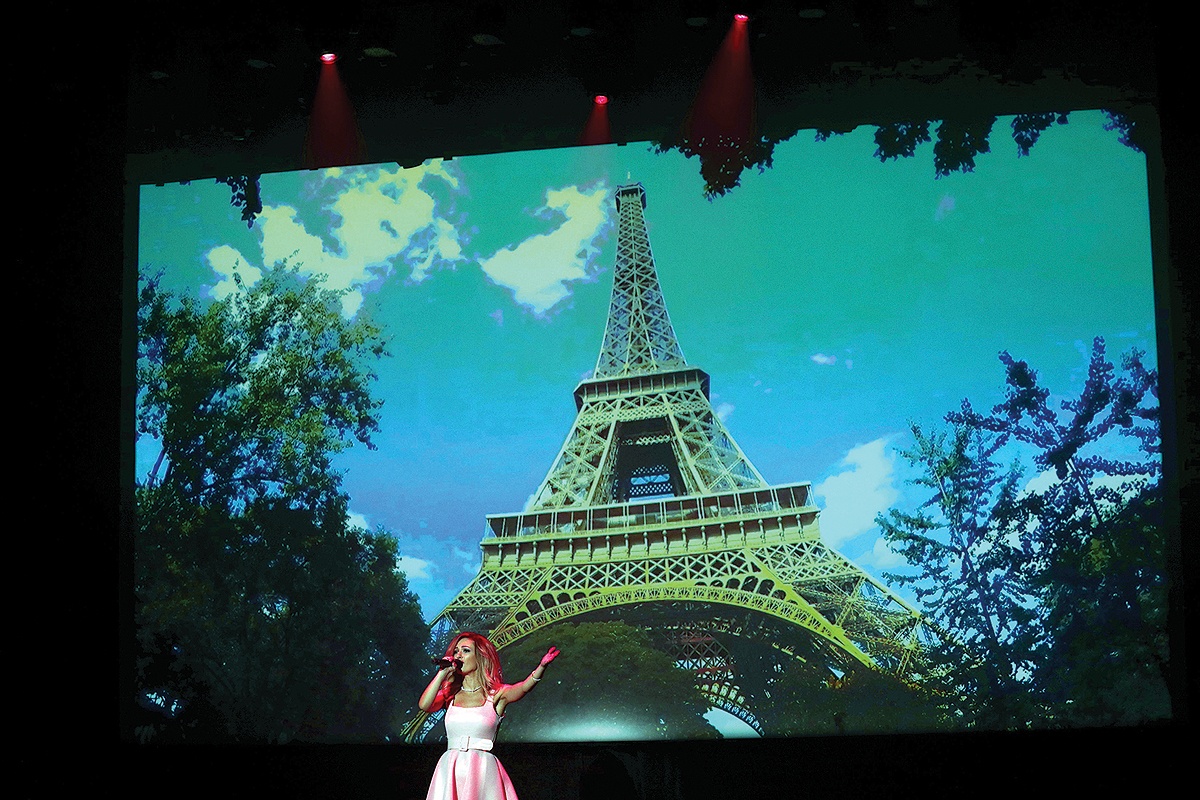In a figure-hugging sparkly dress, Val Monique tears around the stage, whipping up the crowd as she channels her inner Tina Turner and belts out "Proud Mary." Monique is Panama's representative in the Karaoke World Championships, one of 40 amateur warblers selected from 30,000 entrants for the competition, which is being held this year for the first time in its spiritual home of Japan.
Accountants, teachers and economists from as far afield as the Faroe Islands, Guatemala and Brazil battled it out for the prestigious title of the world's best karaoke singer in the competition run since 2003. And like everyone around the world who has ever grabbed the mic, for a brief time under the spotlight, the contestants found their 15 minutes of fame.
"Karaoke can make everyone feel for one moment like a professional. Only karaoke can give you those few minutes of glory on the stage," said Vladyslav Karasevych, a contestant from Ukraine. Resplendent in a black and white "Harlequin" outfit and white hat, and proudly waving a Ukrainian flag, Karasevych introduced his compatriots, including a woman dressed like "Hatsune Miku", a vocaloid character with long blue ponytails and a miniskirt. "Karaoke makes us happy. He is an economist, I am an accountant, and she is a teacher, and we today stand on the stage like professionals, like stars," he said.
Among the karaoke classics featured on Thursday were Spandau Ballet's "Gold" sung by the Finnish entrant and "You'll Never Walk Alone", interpreted by the contestant from the Philippines. The crown went to Jenny Ball from Britain, who sang Queen's "The Show Must Go On" in the semi-finals and Jennifer Hudson's "And I Am Telling You" in the final. "Thank you so much. Arigato!" she exclaimed after her victorious performance on stage. "I don't know what to say!" Her prize: a portable microphone and a medal. The show closed with a chorus of the 1985 sing-along hit "We Are The World" - an annual rendition.
'Great legs'
The annual Karaoke World Championships were first held in Finland in 2003, the brainchild of a Finnish company. The final contestants were selected from some 30,000 applicants across the globe, according to Daiichikosho, a Japanese karaoke company backing the event. The selection process differs from country to country, but in Japan the company asked wannabe competitors to upload their singing performances at karaoke parlors, said Daiichikosho official Kikumi Onchi.
Around 2,200 people applied just for Japan, considered the home of karaoke -- a word that means "empty orchestra" in Japanese -- and where the concept was born around 50 years ago. "We listened to each one of the songs, selected several singers for regional competitions, and picked the final four singers for the world championships," Onchi told AFP. One of the lucky Japanese contestants, Yuji Ogata, voiced delight at performing "at home" after he belted out "ai no sanka", the Japanese version of the Edith Piaf classic "L'hymne a l'amour" ("hymn to love").
"I myself thought the world championships was a far-fetched dream, but here it is happening in Tokyo, Japan," Ogata said.
Vladimir Brilov, a contestant from Russia, said he was making the most of his time in Japan, experiencing the unique Japanese karaoke culture. "I was all alone because I wanted to feel comfortable," Brilov said. "I was a superhero for myself and that made me so pleased." After the show, Panama's karaoke queen Monique paid tribute to her inspiration Tina Turner, an "amazing, powerful woman."
"She is, I don't know even how many years old, and she is still dancing, still singing. I wanted to have that same energy she has on stage and show off great legs like she shows off, even if she's 70-80 years old," she said of Turner, who turned 80 on Tuesday. "I'm so excited. Being on stage was such a rush but adrenaline just hits you as soon as you are there on the stage. It was amazing," she said. "I just wanted to have fun and I think it was worth it." - AFP










